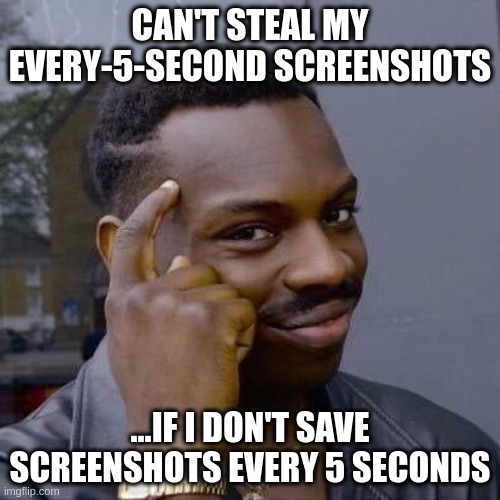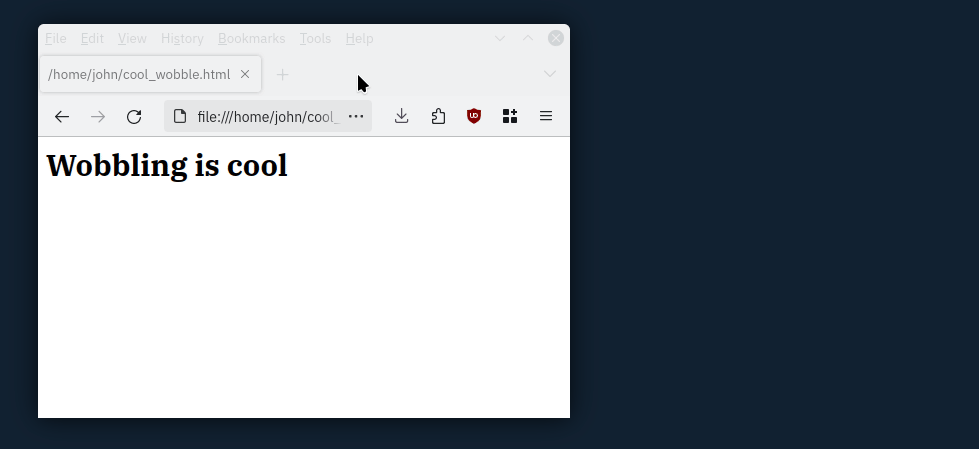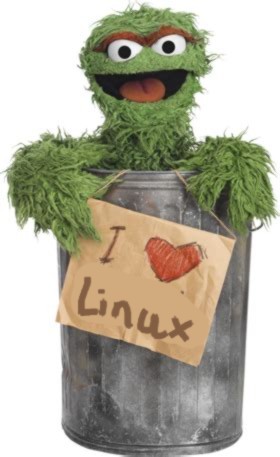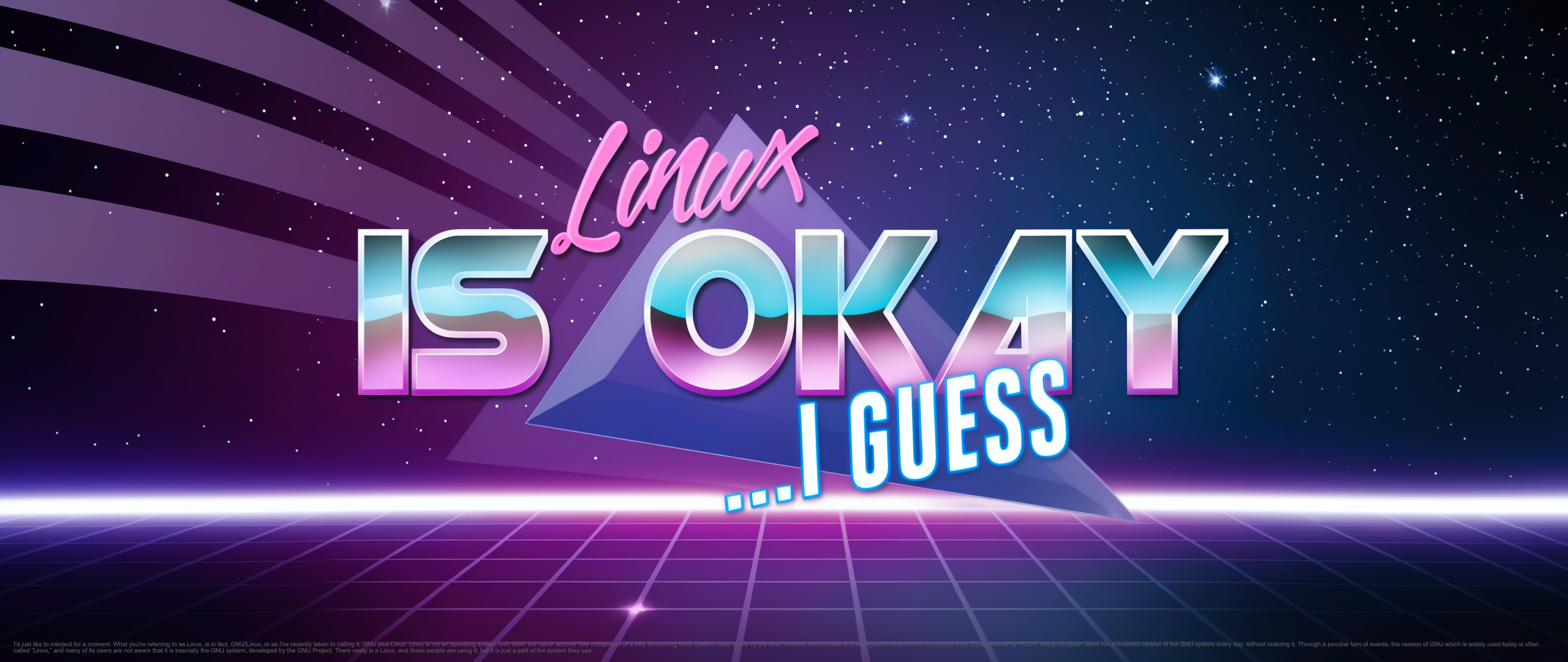Linux is Fine Now
The phrase "will 20xx be the year of Linux on the desktop?" started as a serious question, but over the past 24 years of it never ever being the year of Linux on the desktop, the question became a punchline. Except now, in the year 2024, it might finally be true for some people, and by some people, I mean me. Read on to find out what I think about the experience of using Linux as my daily driver.
You dummy, you were supposed to stop reading! You've come to a place full of unhinged ramblings about old timey concepts like "ownership" and "privacy" and "what if my operating system's primary purpose wasn't spying on me to sell ads"!
Why Linux?
Feel free to skip this personal history lesson, I won't be offended.
I've been using Windows since 3.1 (1993). There was a brief spell during the height of the iPod's popularity where I used an iMac or a PowerBook as my primary computer, but I've been back on Windows since Windows 7. Windows 7 was just about as perfect a system as I could ask for. Hit the Windows key, start typing, run a program. Perfection.
Windows 8 was a bad sign, but I didn't know anyone who actually had it - friends and coworkers stayed on 7 and jumped to 10. 10 was mostly the same as 7, but with some new built-in apps of questionable utility. It had better support for NVME drives, started a little bit faster, had better support for new hardware. But then Microsoft kept updating it. And one day, despite having said "no, I don't want to sign in with a Microsoft account", the Start menu had a little exclamation sign next to my user name, so I clicked it. This took me to a prompt to "sign-in with a Microsoft account" - I wanted to clicked "no, don't ask again".
There wasn't a "no" option. But there was a "Remind me later" button. This is a kind of trick so they can, with faux sincerity, bother you with it again. You didn't click "no, go away!" you clicked "hmmm, I'll think about this and maybe I'll reconsider, so why don't you ask me in a couple weeks".

That was the last straw. I am never going to sign in to a Microsoft account to use my computer. And just after I switched to Linux, Microsoft announced Recall, so I picked the perfect time to ditch Windows. For those of you who haven't heard, Recall in Windows 11 will take screenshots of your desktop every 5 seconds so that its AI can help you find stuff. This is all allegedly secure but it seems like a privacy nightmare. Microsoft has a terrible track record with security, so it'll only be a matter of time before someone gets screwed by this feature.

And it will change from "well, the screenshots are stored locally" to "weeeellll we use them for training data to provide a better experience for EVERYONE". If computers and the Internet have taught us anything, it's that faceless mega corporations will only take and take and take, they do not become less greedy over time. And if there is money to be made from using your screenshots to sell ads, it will happen.
My Linux Background
I have used Linux off-and-on since 2002. I've set up exactly one distributed computing cluster consisting of exactly two computers in like 2004. I've developed software for Raspberry Pi's in a commercial setting. I've deployed more Apache and Nginx web servers than I care to admit (you're looking at one right now!). I did Linux From Scratch and ran Gentoo on a spare computer. I used a cheap crappy Acer netbook running Moblin abroad for journaling. I've used Linode and Digital Ocean and AWS for hosting Linux VMs.
But I always came back to Windows, because Windows had everything I needed and more.
But now, Windows has too much of the "and more", so here comes Linux again. Earlier in the year I tried really hard to use Linux for about a week. I forget which distro it was. Things kind of worked, and kind of didn't, so I returned to Windows. But now, with Windows begging me to get a Microsoft account, I decided to take the plunge.
I'd heard good things about Arch, but also heard that it took some effort to configure. I didn't want to start out at the command line, so I picked EndeavourOS because it is Arch-based but sets up a graphical interface. And even though they spelled "endeavor" wrong, it has turned out to be a pretty good experience.
Nice Things About EndeavourOS
Here is a list of things I like about EndeavourOS, which I will now call EOS because typing that extra "u" makes my American brain hurt.
No Software Center / App Store
A lot of Linux distros try to be like Apple and provide an "app store" that help install 3rd party programs. The problem with this is that they always suck. On EOS you just have the command line package manager called pacman.
System updates are handled by eos-update. And it won't run unless you ask it to, so you won't be interrupted by your computer begging you to restart.
KDE Plasma
EOS is KDE-centric, and the KDE development team has just released a new version of their desktop system called Plasma 6. It's really good. It combines the features you'd expect from a modern graphical system with tons of fun customizations. For instance, you can dock your taskbar to any side of the screen (a feature which Microsoft removed in Windows 11, which I will never forgive them for). There's also silly stuff like wobbly windows. KDE is definitely the best Linux desktop.

KDE also has the benefit of having thoughtful people making decisions about the user experience (UX). For example, some programs from other Linux developers won't show you thumbnails in the "File -> Open" window, can you believe it? KDE has sensible defaults for things like that. A neat trick is you can quickly disable bluetooth by middle-clicking the bluetooth icon on the task bar, and you can mute your sound by middle-clicking the speaker icon. Neat.
Software Availability
Almost all the applications that I regularly use are already run on Linux. Apps like Firefox, Audacity, OBS, PyCharm, and XnView have native Linux versions. And even though I love to hate on Electron/Chromium-based apps, Discord runs great too.
The only place where Linux fails at software is photo manipulation. There is no equivalent to Affinity Photo, so I am still keeping a Windows 10 VM around. To keep it simple, I've limited the VM to host-only networking so Windows can't get on the Internet. I'm not too concerned about Windows security updates, but I am concerned about Windows updates that add stupid features or unasked for apps.
As for office apps, well... I don't care. When I am at home, I am not going to use a spreadsheet or a word processor. I have no problems with Microsoft Office, but I'm only going to use them if I'm getting paid. Open source alternatives are sufficient, but right now I don't have any installed because I don't need them.
What about Games? Aren't they a kind of software?
Well, I do enjoy playing the video games. Most games only have Windows versions. But that turns out to be okay, because of the work that several groups have put in to make games run on Linux.
It all starts with the Wine project. Wine is a program that lets regular Windows software run on Linux. The project has been around for a long time and continuously makes great progress toward 100% compatibility.
Then there's Valve Software's Proton, which helps make Wine work more seamlessly with video games. Games have been historically been harder to get running because they use lots of Windows-exclusive libraries like DirectX which expect to be talking directly to your graphics card. Proton is Wine with a bunch of game-centric fixes.
Games I am able to play flawlessly on Linux include:
- Duck Game (the greatest game of all time)
- Hollow Knight (the second)
- Elden Ring (the third)
- Helldivers 2
- Dark Souls 3
- Carrion
- It Takes Two
- Farlight 84
The Proton community maintains an extensive list of compatible games. There is also a list of tweaks that may help get trickier games running, but I haven't had to do much of that. The only game I haven't been able to get running that I actually care about is Fortnite, but that's not too much of a loss (and it seems to be Epic's fault anyway).
Up-To-Date
EOS is what we fancy people in the industry call a "rolling release". Instead of coming out with version 1 this year, then version 2 next year, etc., EOS constantly updates so that I'm always using the latest vers ions of everything. This could in theory backfire, but it hasn't so far. While I appreciate more conservative distros like Ubuntu and Fedora, I think the rolling release is a good fit for me, especially because other software like Steam/Proton tend to work better when your system has all the latest supporting software.
EOS Doesn't Advertise At Me
So far the EOS developers haven't installed Candy Crush icons in my task bar, or added links to sign up for a subscription backup service. I haven't had to install a "Linux Debloater" to bring me a modicum of privacy.
What Kind of Still Sucks
EOS Linux is pretty good, but here's some pain points:
- No easy way to turn the caps lock key into an additional CTRL key. I managed to do it, but I always forget how.
- Bluetooth wasn't enabled by default, even though my Wifi/Bluetooth card is supported. Had to enable a system service to get it going.
- Installing VMWare Workstation was a little convoluted, not as simple as clicking next->next->finish on an installer.
- Linux remote desktop is kind of bad. This isn't an EOS-specific thing, just a general complaint. VNC is garbage compared to Windows RDP, and the RDP solutions for Linux get hamstrung by weird issues with session management. I was able to make it mostly work using Xrdp.
- No good photo management software. There is no Linux equivalent to DxO PhotoLab.
Do I recommend Linux?
I can live with all these shortcomings. I still wouldn't recommend Linux to anyone who isn't a major nerd though. I did keep notes about things I did to bend EOS to my will.
In Summary
Computers are trash. All computers. But some are more trash than others. Windows is trash because Microsoft wants to squeeze every penny out of you, whether by extracting it directly from your wallet or by selling your info. Linux is trash because it's weird and things don't work sometimes. It's my kind of trash.

If you'd like a wallpaper celebrating Linux's status as pretty okay, here you go.

Comments